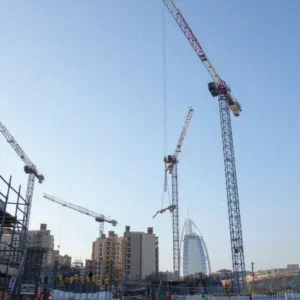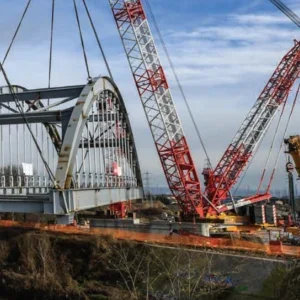Operations director Alexander Biskupski explains: “My grandfather, Boleslaw Biskupski, came to Brazil in 1954, after the Second World War. Everything he had in Poland, including a big agriculture equipment company, was taken by the Russian military. He was kept under arrest for two years in Siberia. My grandfather was a mechanical engineer, and started working here in Brazil with industrial and mechanic projects. Later he set up a representative office of turning machines and an industrial tools shop: Máquinas (Machine) Bolbi. The crane business started as a way to load and unload of machines sols by Máquinas Bolbi. It is still a family owned business.”
The company has developed into a critical lift expert, using 45 mobile cranes and a range of other lifting devices. Biskupski says, “Our work is distributed as 10% rental of cranes, and 90% critical lifts. We work for clients like Petrobras, CVRD, Fiat Group, Companhia Siderúrgica Nacional, Usiminas, CEMIG (Energy Company) and its subcontractor companies. “One of the biggest difficulties that we face is substitution of equipment or parts of equipment in the industry without stopping production, and in confined spaces, or where there is inadequate space for the loading or lifting work.” This market exists because, Biskupski says, “Time is money, and the pressure is very high in the industry.” He adds that Máquinas Bolbi invests a lot on the training of its staff, and always carefully establishes a strategic plan before starting work.
“As well as cranes we use steel mats, Hillmann rollers, some alternative lifting devices and hydraulic equipment like hydraulic gantries and hydraulic jacks.” This equipment has high lifting capacities and can be used in small spaces, or in areas with difficult access.
Maquinas Bolbi unloaded an 82t tractor using 3 employees, steel mats, four 100t hydraulic jacks, and two 250t push jacks. The job took place in a very distant town, and the cost of crane transportation could make the work unfeasible.
Bolbi Tractor






